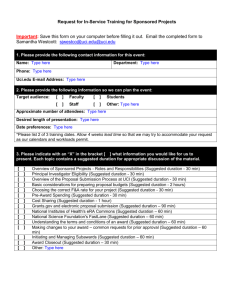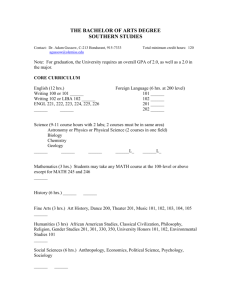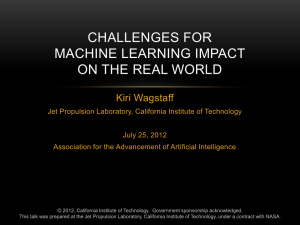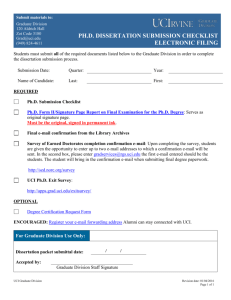Philosophy 5: Contemporary Moral Problems
advertisement
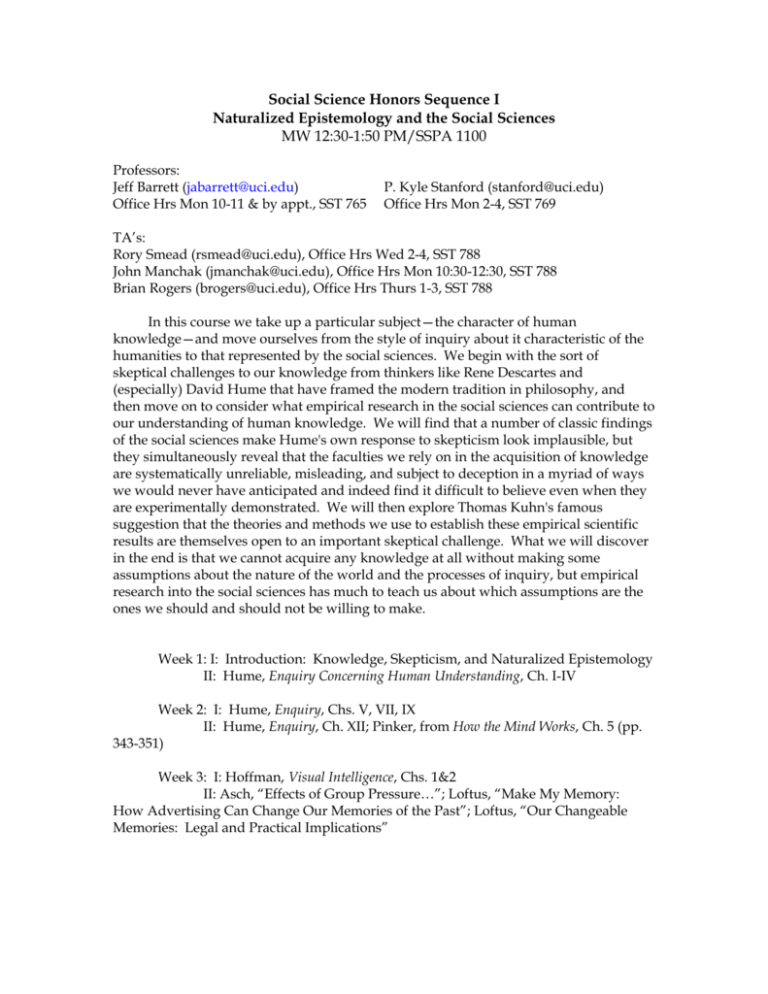
Social Science Honors Sequence I Naturalized Epistemology and the Social Sciences MW 12:30-1:50 PM/SSPA 1100 Professors: Jeff Barrett (jabarrett@uci.edu) Office Hrs Mon 10-11 & by appt., SST 765 P. Kyle Stanford (stanford@uci.edu) Office Hrs Mon 2-4, SST 769 TA’s: Rory Smead (rsmead@uci.edu), Office Hrs Wed 2-4, SST 788 John Manchak (jmanchak@uci.edu), Office Hrs Mon 10:30-12:30, SST 788 Brian Rogers (brogers@uci.edu), Office Hrs Thurs 1-3, SST 788 In this course we take up a particular subject—the character of human knowledge—and move ourselves from the style of inquiry about it characteristic of the humanities to that represented by the social sciences. We begin with the sort of skeptical challenges to our knowledge from thinkers like Rene Descartes and (especially) David Hume that have framed the modern tradition in philosophy, and then move on to consider what empirical research in the social sciences can contribute to our understanding of human knowledge. We will find that a number of classic findings of the social sciences make Hume's own response to skepticism look implausible, but they simultaneously reveal that the faculties we rely on in the acquisition of knowledge are systematically unreliable, misleading, and subject to deception in a myriad of ways we would never have anticipated and indeed find it difficult to believe even when they are experimentally demonstrated. We will then explore Thomas Kuhn's famous suggestion that the theories and methods we use to establish these empirical scientific results are themselves open to an important skeptical challenge. What we will discover in the end is that we cannot acquire any knowledge at all without making some assumptions about the nature of the world and the processes of inquiry, but empirical research into the social sciences has much to teach us about which assumptions are the ones we should and should not be willing to make. Week 1: I: Introduction: Knowledge, Skepticism, and Naturalized Epistemology II: Hume, Enquiry Concerning Human Understanding, Ch. I-IV Week 2: I: Hume, Enquiry, Chs. V, VII, IX II: Hume, Enquiry, Ch. XII; Pinker, from How the Mind Works, Ch. 5 (pp. 343-351) Week 3: I: Hoffman, Visual Intelligence, Chs. 1&2 II: Asch, “Effects of Group Pressure…”; Loftus, “Make My Memory: How Advertising Can Change Our Memories of the Past”; Loftus, “Our Changeable Memories: Legal and Practical Implications” Week 4: I: Cell Phone Experiments (reading online); Festinger and Carlsmith, “Cognitive Consequences of Forced Compliance”; Aronson, “The Theory of Cognitive Dissonance: The Evolution and Vicissitudes of an Idea” II: Maier, “Reasoning in Humans” Week 5: I: Nisbett and Wilson, “Telling More Than We Can Know” II: Midterm Examination. Week 6: I: Kuhn, SSR, Preface & Ch. I-V II: Kuhn, SSR, Ch. VI-VIII Week 7: I: Kuhn, SSR, Ch. IX-X II: Kuhn, SSR, Ch. XI-XIII Week 8: I: Kuhn, SSR, Postscript II: Laudan, “A Problem-Solving Model of Scientific Progress” Week 9: I: Vos Savant, “Ask Marilyn” Parade magazine columns from 9/9/90, 12/2/90, 2/17/91, and 7/7/91; Skyrms, Choice and Chance, pp. 205-215 II: Skyrms, Choice and Chance, pp. 129-158 Week 10: I: Skyrms, Choice and Chance, pp. 187-204 II: Barrett and Stanford, “Prediction”, in Routledge Encyclopedia of the Philosophy of Science Readings are available at the University Bookstore (books, coursepacket) or on the course website (http://www.lps.uci.edu/SSHonors/). All reading should be completed before lecture. Grades will be determined by one midterm, one final examination (cumulative), and participation in section. Each examination will involve answering ten essay-style questions that all have equal weight in the final grade. The examinations will allow for some flexibility in which questions one answers. A list of study questions will be made available before each of the examinations. There is no direct penalty for not participating in section discussions, but consistent, active, smart participation can improve one’s course grade (the grade after averaging the two exam grades) by as much as one-half letter grade and perhaps even more in truly exceptional cases. NOTE: This year we are unveiling a comprehensive website for this course available at the following address: http://www.lps.uci.edu/SSHonors/. This website was designed and produced by two of former TA’s for the course (Kevin Zollman and Sam Hillier) and includes weekly summaries, review questions, links to web resources, and an extensive glossary of important, technical, and/or unfamiliar terms and concepts. We urge you to take full advantage of the website and to provide us (and them) your feedback about how we can make it even better for the future.

